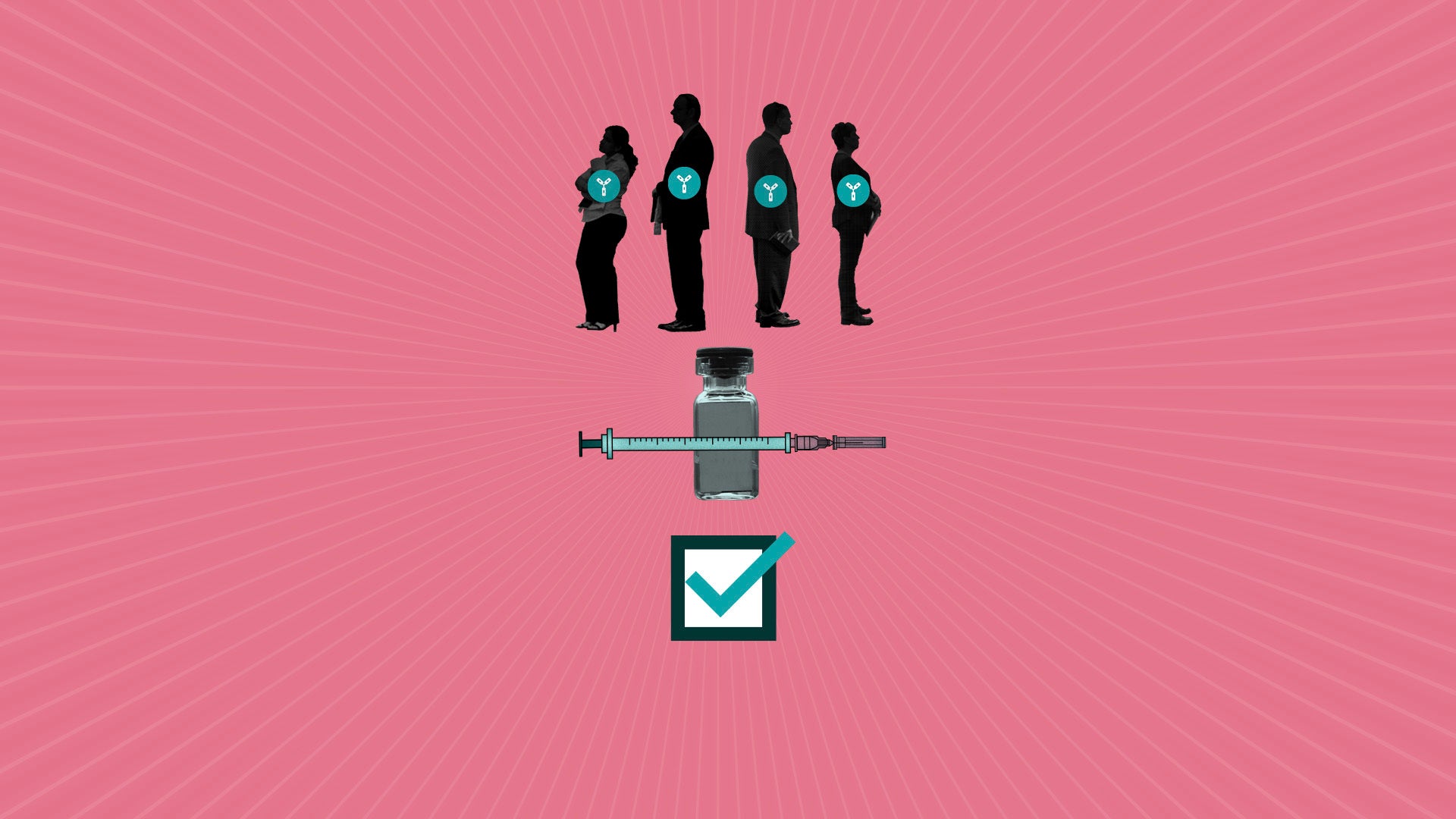Should I get a COVID-19 vaccine if I've had the virus?
Health experts say people who have had the coronavirus should still plan on getting a COVID-19 vaccine once it's available to them

Your support helps us to tell the story
From reproductive rights to climate change to Big Tech, The Independent is on the ground when the story is developing. Whether it's investigating the financials of Elon Musk's pro-Trump PAC or producing our latest documentary, 'The A Word', which shines a light on the American women fighting for reproductive rights, we know how important it is to parse out the facts from the messaging.
At such a critical moment in US history, we need reporters on the ground. Your donation allows us to keep sending journalists to speak to both sides of the story.
The Independent is trusted by Americans across the entire political spectrum. And unlike many other quality news outlets, we choose not to lock Americans out of our reporting and analysis with paywalls. We believe quality journalism should be available to everyone, paid for by those who can afford it.
Your support makes all the difference.Should I get a COVID-19 vaccine if I’ve had the virus?
Yes. Regardless of previous infection the U.S. Centers for Disease Control and Prevention says people should plan on getting vaccinated when it's their turn.
“It’s a pretty straightforward question,” said Johns Hopkins infectious disease specialist Dr. Amesh Adalja. “Yes, you need to get vaccinated.”
After someone recovers, their immune system should keep them from getting sick again right away.
“Your immune system is able to identify the virus and protect itself,” said Dr. Saskia Popescu, an infectious disease expert at George Mason University.
Scientists still don’t know exactly how long this immunity lasts or how strong it is, though recent research suggests the protection could last for several months.
It’s impossible to know how long a person might be immune, said Dr. Prathit Kulkarni, an infectious disease expert at Baylor College of Medicine. “There’s no way to calculate that.”
Vaccines by contrast, are designed to bring about a more consistent and optimal immune response. And they should boost whatever preexisting immunity a person might have from an infection, experts say.
“Since we’re in this pandemic, and don’t have a handle on it, the safer approach is to vaccinate,” Kulkarni said. “You don’t lose anything and you stand to benefit.”
If you’ve been infected in the last three months, the CDC says it's OK to delay vaccination if you want to let others go first while supplies are limited.
“All things being equal you would want the person with no protection to go first,” Adalja said.
___
The AP is answering your questions about the coronavirus in this series. Submit them at: FactCheck@AP.org.
Read previous Viral Questions:
If I’ve already had the coronavirus, can I get it again?
How quickly do I need a second COVID-19 vaccine shot?
Can I stop wearing a mask after getting a COVID-19 vaccine?
Subscribe to Independent Premium to bookmark this article
Want to bookmark your favourite articles and stories to read or reference later? Start your Independent Premium subscription today.